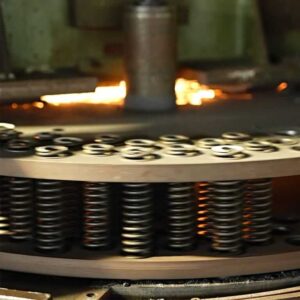Aftertreatment

Aftertreatment
Chrome plating: Chrome plating is a process in which a thin layer of chrome is applied to the surface of a metal object. This treatment is ideal for improving corrosion resistance and wear resistance, while also providing a glossy finish.
Nickelization: Nickel plating involves coating metal parts with a layer of nickel to improve their resistance to corrosion. It results in a hard, abrasion-resistant surface with a clear or matte finish.
Chemical Blacks: Chemical blackening is a process used to form a black conversion layer on steel, resulting in increased corrosion resistance and reduced light reflection.
Epoxying: Epoxy coating involves applying a thin layer of epoxy resin, which provides a strong, durable, and chemically resistant coating. This treatment is perfect for protecting surfaces from corrosion and wear.
Coating: Coating is a general term for applying a protective or decorative layer to a surface. Methods and materials vary, depending on the desired result.
Galvanizing: The galvanizing process protects metals by coating them with a layer of zinc, which helps prevent corrosion.
Pickling and Passivation: Pickling is the process of removing impurities such as rust from metal surfaces. Passivation is a method used to protect the metal from further corrosion.
Electrolytic Polishing: Electropolishing is a process in which metal is polished in an electrolytic solution, resulting in a smooth and shiny surface.
Gilding: Gilding involves applying a thin layer of gold to an object, often for decorative purposes or to prevent corrosion.
Silver Plating: Like gilding, silver plating means applying a thin layer of silver to an object for both aesthetic and functional benefits.
Choose the Best Post-Treatment Solution for Your Springs!
Get in touch with us today to explore the ideal post-treatment options tailored for your springs, ensuring they perform at their very best.
